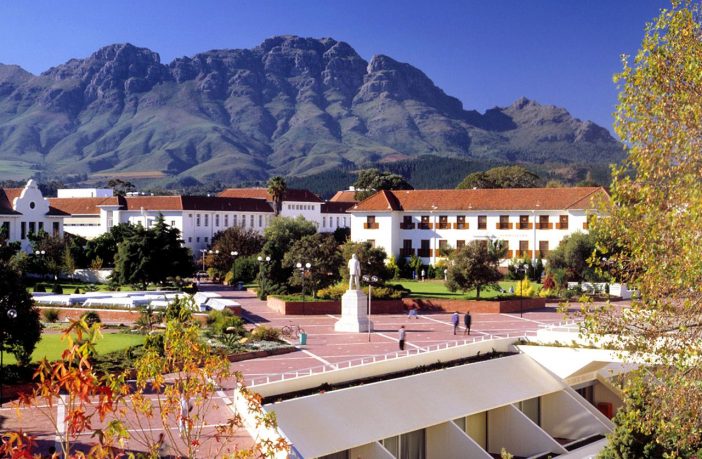- Stellenbosch University (SU) is set to become a leading research partner in initiatives to advance the use of green hydrogen as energy source.
The University recently signed a Memorandum of Understanding (MoU) with Teesside University in England as part of the South African president’s recent visit to the United Kingdom (UK), while SU allocated an initial R12 million towards establishing research expertise in the field.
The MoU sets out the research activities that will help South Africa with technology localisation, as well as industrialisation using the hydrogen economy.
“The main focus is the production of green hydrogen, which is produced by electrolysis of water using renewable energy resources such as solar and wind energy,” explains Prof Sampson Mampwheli, Director of the Centre for Renewable and Sustainable Energy Studies (CRSES) at SU.
“The research activities will include amongst other areas, hydrogen production technologies, hydrogen conversion technologies such as fuel cells and gas turbines, techno-economic analysis of hydrogen projects such as the production of hydrogen for the export market. More focus will be on the activities around the hydrogen valley as proposed in the Hydrogen Society Roadmap approved by Cabinet earlier this year.”
Mamphweli represented Prof Sibusiso Moyo, SU’s Deputy Vice-Chancellor: Research, Innovation and Postgraduate Studies, at the event, which was also attended by Dr Blade Nzimande, the South African Minister of Higher Education, Science and Technology, and other dignitaries of the South African Department of Science and Innovation.
Prof Steve Cummings, Pro Vice-Chancellor (Research and Innovation), represented Teesside University at the signing at theHouse of the Lords.
Both the British and South African governments will make resources available for the operationalisation of the MoU, which will result in hydrogen technology localisation in line with the provision of South Africa’s Hydrogen Society Roadmap. The British government has already pledged financial support in the form of grant funding during President Cyril Ramaphosa’s state visit to Britain. The grant funding will assist South Africa in the operationalisation of the hydrogen plans.
This ceremony was one of many ceremonies and agreements reached between South Africa and Britain on the State visit by Pres Ramaphosa.
Prof Sibusiso Moyo added that she is pleased to have collaboration with Teesside University and the University’s regional and national partners on finding sustainable solutions to the energy crisis. “Through its Centre for Renewable and Sustainable Energy Studies, Stellenbosch University boasts an impressive history of research on renewable energy. Research on green hydrogen will complement existing research on solar and wind energy – amongst others.”
The two institutions will also collaborate with other institutions working in the hydrogen field in their respective countries. Teesside University intends collaborating with Durham University amongst other institutions, and SU intends collaborating with institutions such as the Durban University of Technology, the Cape Peninsular University of Technology, North West University and the Universities of Cape Town, Venda and the Western Cape and the Council for Scientific and Industrial Research (CSIR).
Prof Craig McGregor, Associate Professor in SU’s Department of Mechanical and Mechatronic Engineering, says that the development of green hydrogen technology has the highest support within the University. “More than R12 million over the next three years has been allocated to the Faculty of Engineering to establish world class research in the field. The funding will cover the appointment of a part-time director, programme manager and three to four postdoctoral fellows, and a contribution to fund student and staff research projects. The research will be focused in three areas: Firstly, new technology development, such as photocatalytic hydrogen production and hydrogen storage. Secondly, technology intelligence and systems engineering that will study how best to apply the available hydrogen technologies within the Southern African and global context. And finally, technology demonstration and deployment for technologies that have passed the technology intelligence stage.”
The University will continue to explore and develop further sources of investment for the research.
Author: Bryan Groenendaal
















1 Comment
Pingback: SA, UK Universities Partner on Green Hydrogen Research